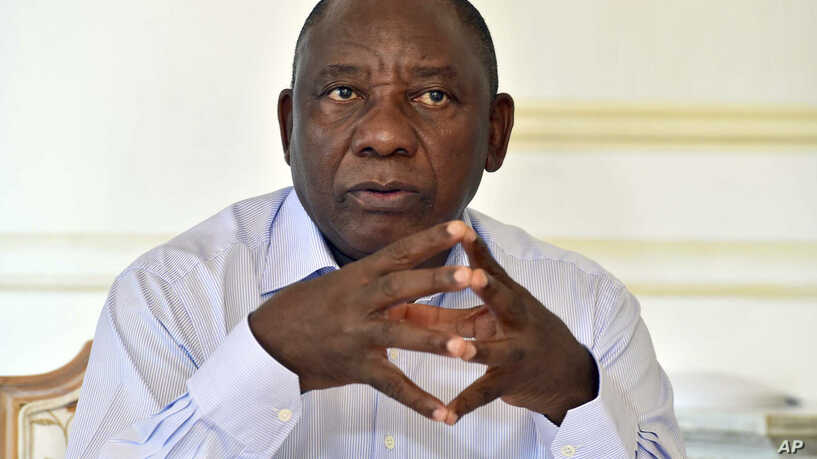The Budget presented by Finance Minister Tito Mboweni last week presents a sobering assessment of the state of our economy.
The figures make it plain that unless we act now to turn things around, there will be even more difficult times ahead.
Put simply, we are spending far more than we are earning.
As a result, we are borrowing more and more, and the cost of servicing that debt is rising. In fact, debt service costs are now the fastest-growing area of expenditure. We spend more on debt repayments than we do on health; only education and social development get more.
This position is precarious and unsustainable.
We need to make significant changes and we need to make them now.
There are several reasons for the position we’re now in. Our economy has not grown much over the last decade, mainly due to the 2008 global financial crisis and a decline in demand for the minerals that we export. As a result, revenue collection has been weak and we have had to borrow more to sustain spending on development, infrastructure and wages. At the same time, state capture and corruption has affected governance, operational effectiveness and financial sustainability at several public institutions, including state-owned enterprises (SOEs).
Efforts over the last two years to revive the economy and rebuild institutions have now been undermined by the electricity crisis, further constraining growth and placing an additional burden on public finances.
Our priorities in this budget therefore are to put the economy back on a path of growth, constrain public spending and stabilise our debt.
The budget is an integral part of our drive for inclusive growth, job creation, investment and a capable state.
We have made a deliberate decision not to pursue a path of austerity. Such a route would have seen deep cuts in spending on the social services that poor people rely on. It could have involved dramatically reducing the salaries of civil servants, the size of the public service, cutting bonuses and pensions, raising taxes and selling off key state assets.
An austerity budget would have damaged our growth prospects further and weakened the ability of the state to stimulate economic activity and meet people’s needs.
We have instead presented a budget that contains a range of balanced and well-considered measures to contain spending, increase revenue and encourage growth.
Over the next three years, we expect to achieve savings of around R261 billion by cutting the budgets of several departments and reducing the rate at which the public service wage bill increases. At the same time, however, we will need to spend more to support the restructuring of SOEs like Eskom and SAA. As a result, we expect a net reduction of R156 billion in non-interest spending over the medium term.
This will help to narrow the deficit and reduce our borrowing needs.
A large part of the savings will come from reducing the rate at which our wage bill grows. This will require focused discussions among all social partners, but particularly with public sector unions. These engagements need to be conducted in a spirit of seeking solutions. I am heartened by the willingness of all parties to engage in serious negotiations aimed at finding a solution.
Our approach is not to dramatically cut the size of the public service, but to examine the rate at which wages grow. Public service wages have on average increased at a much higher rate than inflation over many years, and we need to fix this if we are to get public finances under control. This also applies to the management of people’s personal finances, where if any expenditure item that rises at a rate more than inflation – be it electricity tariffs, mobile tariffs or food – will always put any individual person’s budget and finances under strain and out of kilter.
The wage bill remains the largest component of spending by economic classification. Growth in the wage bill has begun crowding out spending on capital projects for future growth and items that are critical for service delivery.
The public service wage bill is by no means the only area where we are cutting costs. I have decided that there will be no increase in the salaries of senior public office bearers this year. This follows a reduction in benefits stemming from changes to the Ministerial Handbook. We will publish a new law this year introducing a remuneration framework for public entities and state owned companies to prevent excessive pay for board members and executives.
Our trade union compatriots are right in saying that we should in a demonstrable way prevent leakages of public funds by addressing corruption, ending irregular, fruitless and wasteful expenditure. We will do this and much more.
As much as containing the public wage bill is critical to stabilising public finances, improving public sector performance is imperative if we want to build a more capable, efficient state. We need more of the right people in the right positions.
As we contain public spending, we are pursuing growth. It is for this reason that, despite the fiscal gap, there are no major tax increases. Instead, there is some relief for individual tax payers and several measures to broaden the corporate tax base. We are also pushing ahead with far-reaching reforms in areas like electricity provision, ports and rail and telecommunications to reduce the cost of doing business. Through the Infrastructure Fund we aim to mobilise financing from a range of sources to invest in a massive build programme. Through our industrial strategy and investment drive we are unlocking vital areas of growth.
We are fixing our public finances to make inclusive growth and job creation possible. Such times call for us to be realistic, not dogmatic. They call for cooperation, not conflict. Compromises and trade-offs will have to be made.
We are all in this together, and we share a collective responsibility to take the oars, to row in unison and steer our country through these stormy waters.

